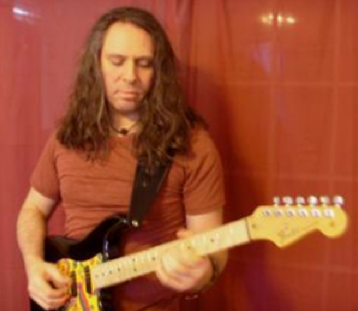What In the World: How to Successfully License Your Music

Music licensing, or making music available for use in TV and/or film, has become very popular over the past few years.
This is greatly due to the number of TV shows being produced now and the need for lots of music to fill up an hour or half-hour time slot.
This growing demand for TV background music has really helped to become the source of supplemental, and sometimes primary, income for a lot of musicians. It is very difficult to rely on CD and/or MP3 sales for any kind of income. Taking the same songs from your CD — and now making them available to a host of different production music libraries — can give new life to the songs and make the chances greater of making money with your music.
First of all, if you have not already done so, pick a PRO or performance rights organization to affiliate with. Without being affiliated to a PRO, you cannot get paid. The three companies in the U.S. are BMI, ASCAP and SESAC. In Canada, the main company is SOCAN. In England it is PRS.
The key to being successful at music licensing is to be diverse in the styles of music you compose — and to be prolific. This is not to say that submitting a handful of songs to a library cannot yield you a lot of money; this happens all the time, but to see steadily rising amounts of money in your royalty checks, it is best to have a big catalog of music.
Whatever style of music you're most comfortable writing, definitely write a lot of that, but also try writing in styles that you might not be as familiar with or even like. They might be styles that are in high demand. I grew up listening to and writing rock music, but now I compose in most styles. The more convincingly you can compose in a style, the more of a chance you have of your music being licensed.
Compositionally, no matter what the style, if you are writing with the intention of presenting your music to libraries, there are a few things that can greatly increase your chances of having your track accepted and possibly placed. Most TV cues (songs/compositions) only need to be 1:30 to two min long. In that short span of time, there should be a lot of movement/ changes. For a two-minute cue, try and have it change up three or four times, while still retaining a good flow. This will make it more attractive to an editor and can make it easier to chop up, so you almost get four cues in one.
All the latest guitar news, interviews, lessons, reviews, deals and more, direct to your inbox!
Here's an example of an orchestral/trailer piece I did that changes a few times throughout the piece:
Another technique that's useful for TV composing is throwing in a one- to two-second sec dead stop someplace in the middle. This will make it easy for an editor to chop up and just use part of the cue if they want. Here's a rock cue I did that has that kind of a break in it:
Definitely, stay away from any kind of shredding, unless requested. Think simple and catchy. Flashy here and there is OK sometimes, but in very small amounts.
Spend some time making sure your mix sounds great also. It would be a shame if you wrote something really cool that had a lot of placement potential but was rejected or passed over because of a poor mix.
A great resource for finding libraries to submit to is musiclibraryreport.com. There are hundreds of libraries listed there.
I hope this has been helpful for all of you who would like to take a stab at this kind of composing. The time span between submitting a track and seeing money from it could be up to two years, so patience is a must. It will be well worth it in the end.
Steve Booke is a composer for film and TV from the New York area. His compositions range from orchestral to metal to world styles from every corner of the planet. A graduate of Berklee College of Music, Steve has played guitar for more than 28 years. He has recorded 10 albums of his own and has played on countless others. He plays gigs in the NY area and tours the East Coast with a variety of bands. He has performed with Ben E. King and members of Mahavishnu Orchestra. He endorses D'Addario/Planet Waves, Larrivee Guitars, Levy's Leathers, Peavey, Stylus Pick, Finale PrintMusic, Pigtronix, Tech 21, Toontrack, Graph Tech, Seymour Duncan, Waves, Studio Devil and L.R. Baggs. His music is available on iTunes and Amazon. Steve is now offering Skype lessons and can be contacted at info@stevebooke.com. Visit stevebooke.com and Facebook.com/SteveBookeGuitaristComposer.
